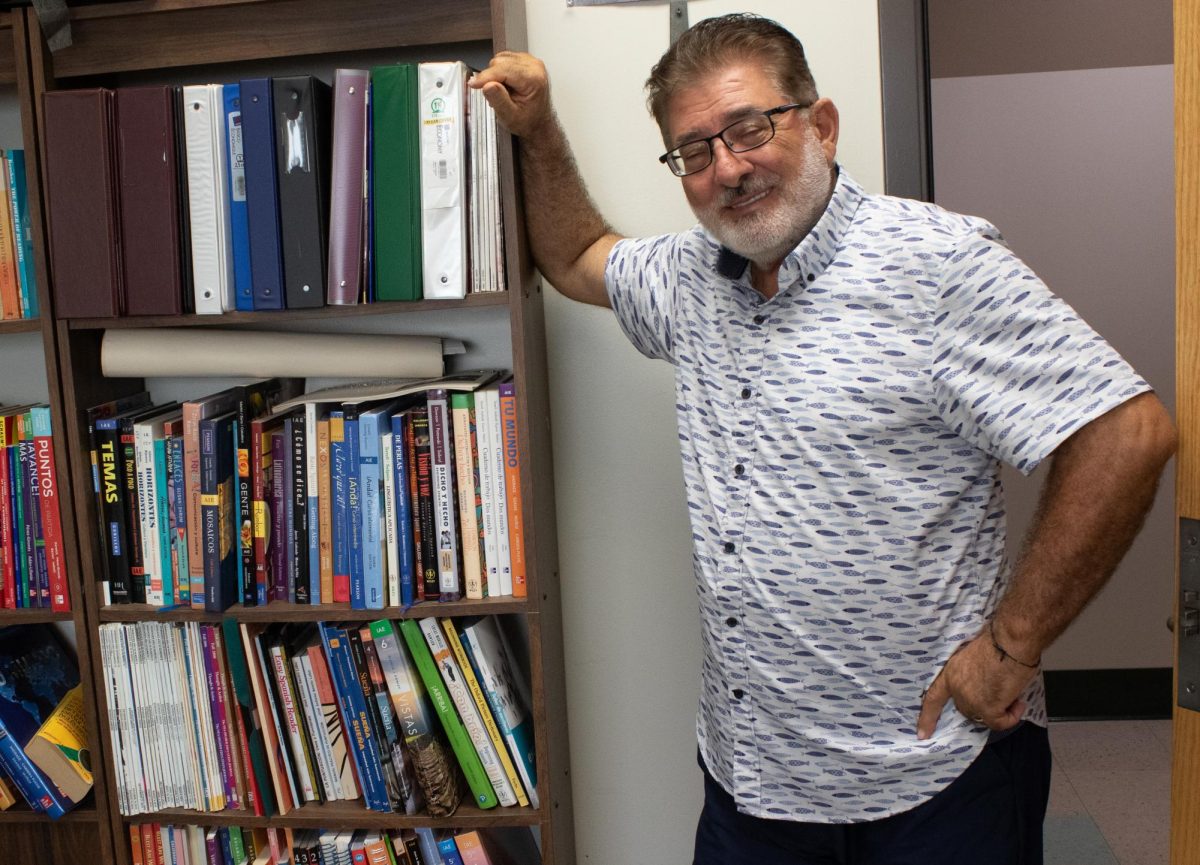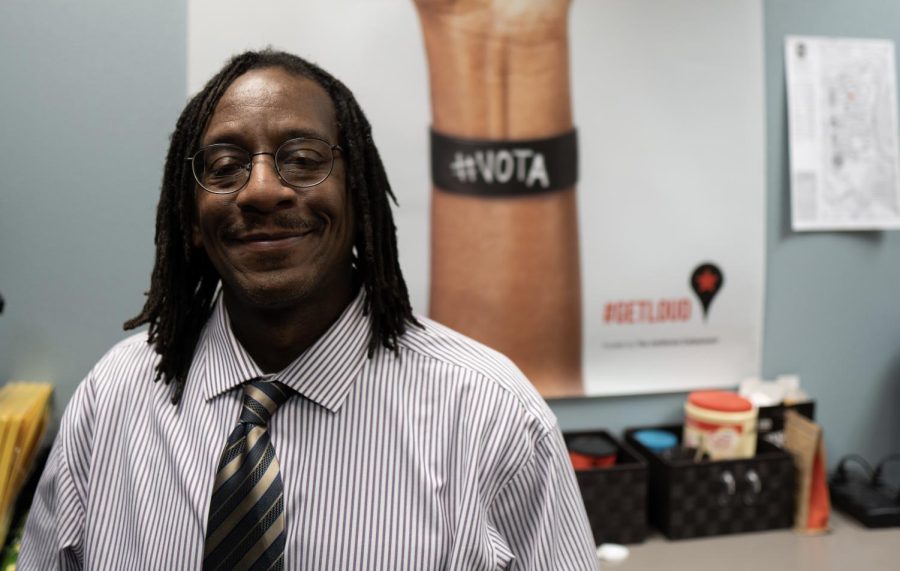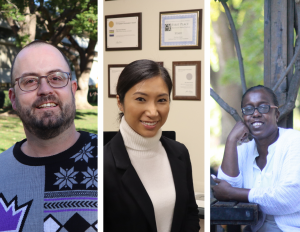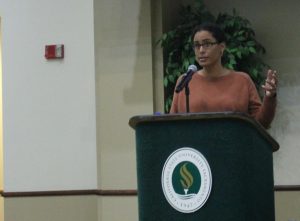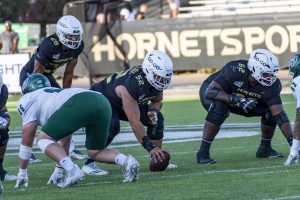Housing to be provided for formerly incarcerated students
Sac State launches program in collaboration with Project Rebound
Michael Love, a fourth year communications major, in the Project Rebound office where he serves as an office assistant Thursday, Feb. 23, 2023. Love said he believes Project Rebound students will benefit from the housing project because it will give them a safe space to achieve their degree.
March 1, 2023
Sacramento State has helped purchase two houses in collaboration with Project Rebound, a program focused on supporting formerly incarcerated students, in hopes of assisting the students with housing insecurity.
Director of Project Rebound Aaron Greene said these homes will help students who face multiple barriers after incarceration. The project also extends further to assist them in acquiring rental history and references so they can find permanent housing once exiting the program.
“We noticed that there was a need for this space,” Greene said. “At least 15 of our students out of 57, when we originally asked, were extremely housing insecure. Almost half of them were either couch surfing or completely homeless.”
With the addition of these two new homes, Sac State will become the second California State University to house Project Rebound students. Project Rebound’s John Irwin House at Cal State Fullerton was the first housing community for formerly incarcerated students in the United States.
Greene said funding for the homes came from a $550,000 grant from the Project Rebound Consortium. Additionally, the Office of President Robert Nelsen and University Enterprises Inc. matched that amount by contributing $275,000 each.
Housing is one of the biggest issues formerly incarcerated people face, according to Michael Love, a fourth year communications major and office assistant for Project Rebound.
“I did 35 years in prison and, just a person knowing inside that they are going to have a place to go, it just takes a lot of weight off a person’s shoulders,” Love said. “Project Rebound for me makes a person want to believe in themself and makes you want to go forward.”
According to Love, the housing the state of California offers isn’t ideal, saying it’s “strife with drugs and people who still live a criminal lifestyle.”
Trish Morris, executive director for Project Rebound and associate professor of sociology, said each home is expected to house about four students and will be managed by former Project Rebound student Joshua Gunner Johnson.
Johnson will be the designated housing coordinator to help model communal living and be a mentor for students living in both homes, Morris said.
“Our hope is for these students to be good neighbors and stewards of their community,” Morris said. “We are hoping that the housing project will be successful and inspire other California universities and their presidents to follow suit.”
Love said the housing project will provide students with a safe space away from distractions so they can focus on their studies and be around students with similar academic goals.
The cost of rent will be proportionate to each student’s income, Greene said. A portion of the money they contribute towards rent will be set aside for each student to build a savings account, accessible once they exit the program.
Morris said this investment teaches students financial responsibility and helps them achieve a work-life balance to ensure a smooth transition after graduation.
The homes will provide the students with a family setting and a constant place to go, according to Morris. She said building a community of formerly incarcerated students allows them to network, which is important for achieving success.
Having nowhere to go after being released from prison can lead to a downward spiral that’s difficult to get out of, Morris said, adding that because of challenges to gain employment with no formal address and a criminal history, formerly incarcerated students are set up to fail.
However, with the addition of this new housing project, Morris hopes to prevent those challenges.
Project Rebound is not disclosing the location of the houses or individuals who will be living there at this time, though the homes will be close to campus, Morris said.
According to Morris, students are expected to move into the first home during spring break; residents of the second home may not move in until this summer due to housing repairs.
“This is a huge step forward, even for a few students at a time,” Morris said. “In terms of positive social change, these houses will do more to help for decades for these students who face a lot of barriers in trying to achieve a bachelor’s degree.”



